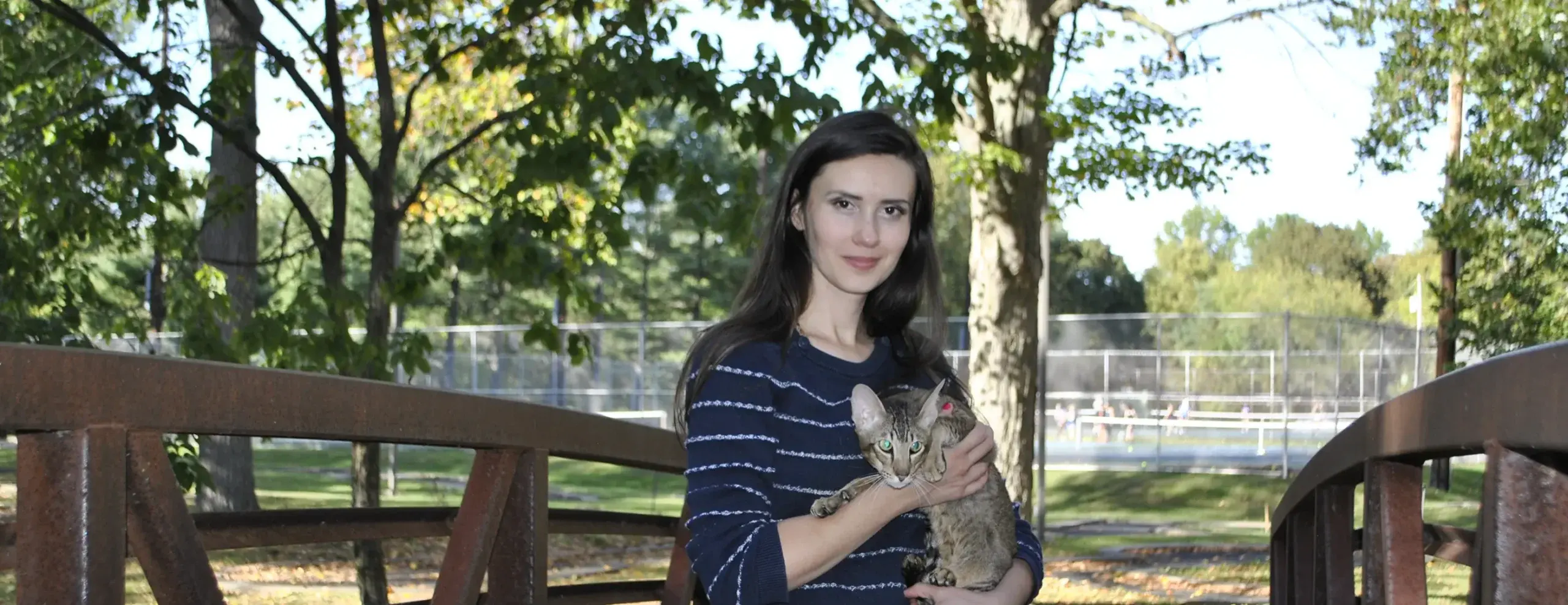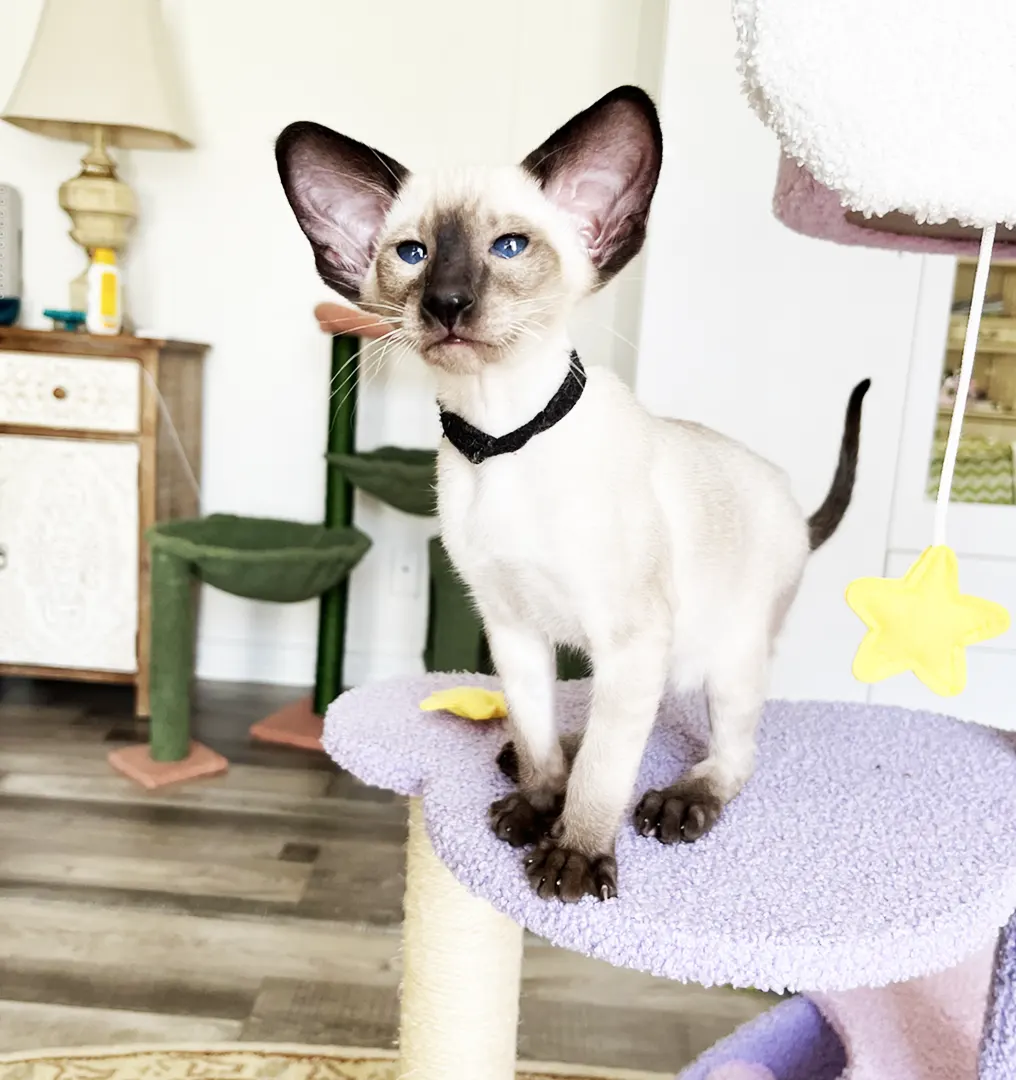There are several options available for shipping kittens to their new homes.
Today, nobody disputes the fact that gonadectomy (a surgical procedure by which ovaries or testicles are removed) in animals not intended for breeding is neither a tribute to fashion nor a whim. Even though spaying/neutering does not affect the health or psychoemotional state of animals, it remarkably eases a cat’s life after the removal of the obsessive instinct to reproduce, which corresponds to the principles of pet welfare. In addition, gonadectomy is the most humane tool for controlling the animal population.
Although this seems more or less clear, early-age (pediatric) gonadectomy still fuels a lot of controversy.

Early-age gonadectomy is usually done at the age of 8-16 weeks. Until recently, the generally accepted age in veterinary practice for animal spaying has been 6-8 months. There is no scientific justification for this; it is just generally accepted. Cat owners fear that it may be detrimental to the health of the animal, or that anesthesia administered during such a procedure might be deadly for young kitties. This is largely believed because cat owners are intimidated by myths.
Under US law, animal shelters must transfer spayed/neutered animals to new owners. It’s no secret that small kittens are more probable to find a new home compared to adult cats. In this regard, the University of Florida at Gainesville conducted extensive research in 1991, to evaluate the long-term effects of early-age gonadectomy. This study, together with lots of other research, helped refute many common myths and false beliefs surrounding this procedure. The most common myths to spread around are:
Myth 1: Growth delay in kittens after early-age gonadectomy
Gonadectomy, both at 8 weeks and 7 months slows down the growth of bone plates until the age of 14 months. As a result, the growth of long bones takes a bit more time. Today, there is no scientific evidence to prove that this poses any problem.
Numerous studies support this position. In 1987, Leo L. Lieberman, DVM, wrote in his report published in the Journal of the American Veterinary Medical Association (JAVMA) that kittens after early-age gonadectomy suffered no medical or behavioral side effects at older ages.
Myth 2: Predispositions to urolithiasis in male cats after early-age gonadectomy
The penis of male cats before puberty is infantile, but the urethral lumen and the urinary functions do not change in spayed female cats either in 7 weeks or in 7 months. Vets know that kidney stone problems depend only on diet and genetic predisposition. There is no point in waiting for an older age to spay your pet.
Myth 3: It is hard for small kittens to recover from gonadectomy
Clinical evidence shows otherwise:
- During surgery, bleeding is minuscule and of minor significance.
- Young Kitten tissue is more elastic, which facilitates the vet’s work.
- Fewer stitches and less healing time are required. Moreover, the dose of anesthesia is significantly lower and the rehabilitation period after anesthesia is shortened as well.
As we can see, it is much quicker and easier for young kittens to recover from gonadectomy.
After acquiring extensive experience in breeding pure breed Bengal and Oriental cats since 2010, I can confirm that the overwhelming majority of kittens in my clinic have been neutered before their transfer to a new home. No problems were ever reported with cats that were spayed at an early age. Moreover, I am convinced that when a cat’s body begins to produce sex hormones (usually around the age of 6 months) and starts to demonstrate sexual behavior (spraying, heat, vocalization, aggression, and desire to escape outdoors for mating), after gonadectomy the function of producing sex hormones can pass to the pituitary gland and sexual behavior will be preserved. This can be avoided by gonadectomy before puberty (so-called early-age Spaying/Neutering).
Besides being endorsed by the American Veterinary Medical Association, early-age sterilization, and neutering before adoption have been supported by organizations such as the Association of Veterinarians for Animal Rights (AVAR), the American Animal Hospital Association (AAHA), the ASPCA, Spay/USA and the American Humane Association (AHA).
Additional Resources:
The authors of the next 2 articles studied the long-term effects of pediatric gonadectomy and concluded that gonadectomy can be safely performed in cats under 6 months of age. These articles are followed by reports of 2 studies of cats neutered at over or under 24 weeks of age. The authors found no increased risk of disease or other health problems in cats neutered early.
Long-term risks and benefits of early-age gonadectomy in cats (Source).
Highlights:
- Studied 1,660 cats adopted from shelters
- Early-age gonadectomy beneficial in male cats
- Asthma, gingivitis decreased in both sexes
- Gonadectomy is safe in cats under 6 months of age
Results of that study also suggest that prepubertal gonadectomy may result in some unidentified protective effect on the urinary tract, compared with traditional-age gonadectomy in some cats.
Long-term outcome of gonadectomy performed at an early age or traditional age in cats (Source).
Highlights:
- Health status of cats monitored for 3 years
- No increase in physical or behavioral problems
- No increase in infectious disease in either group
- Early-age neutering did not increase problems
This article was also published on cats.com on Apr 14, 2021





